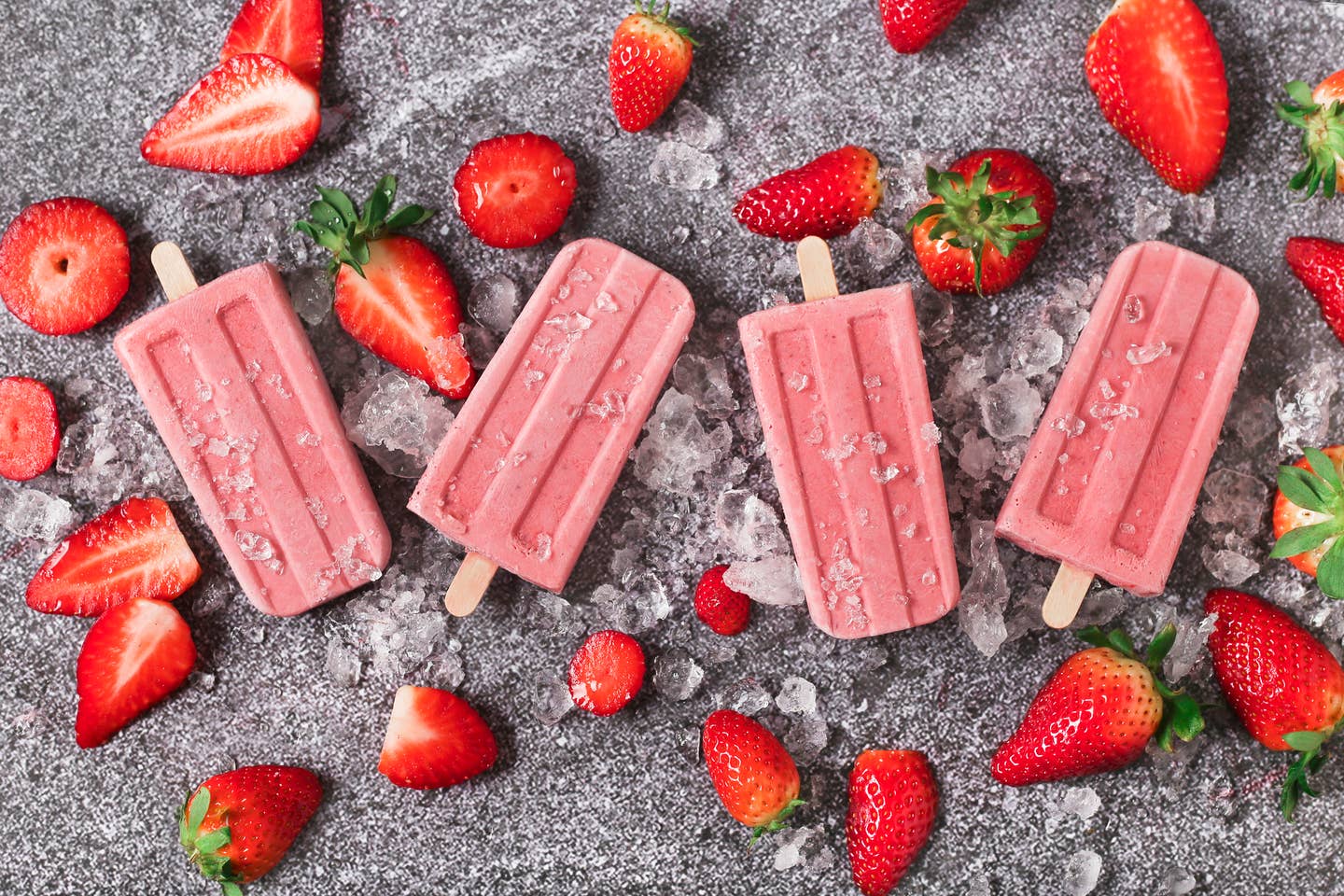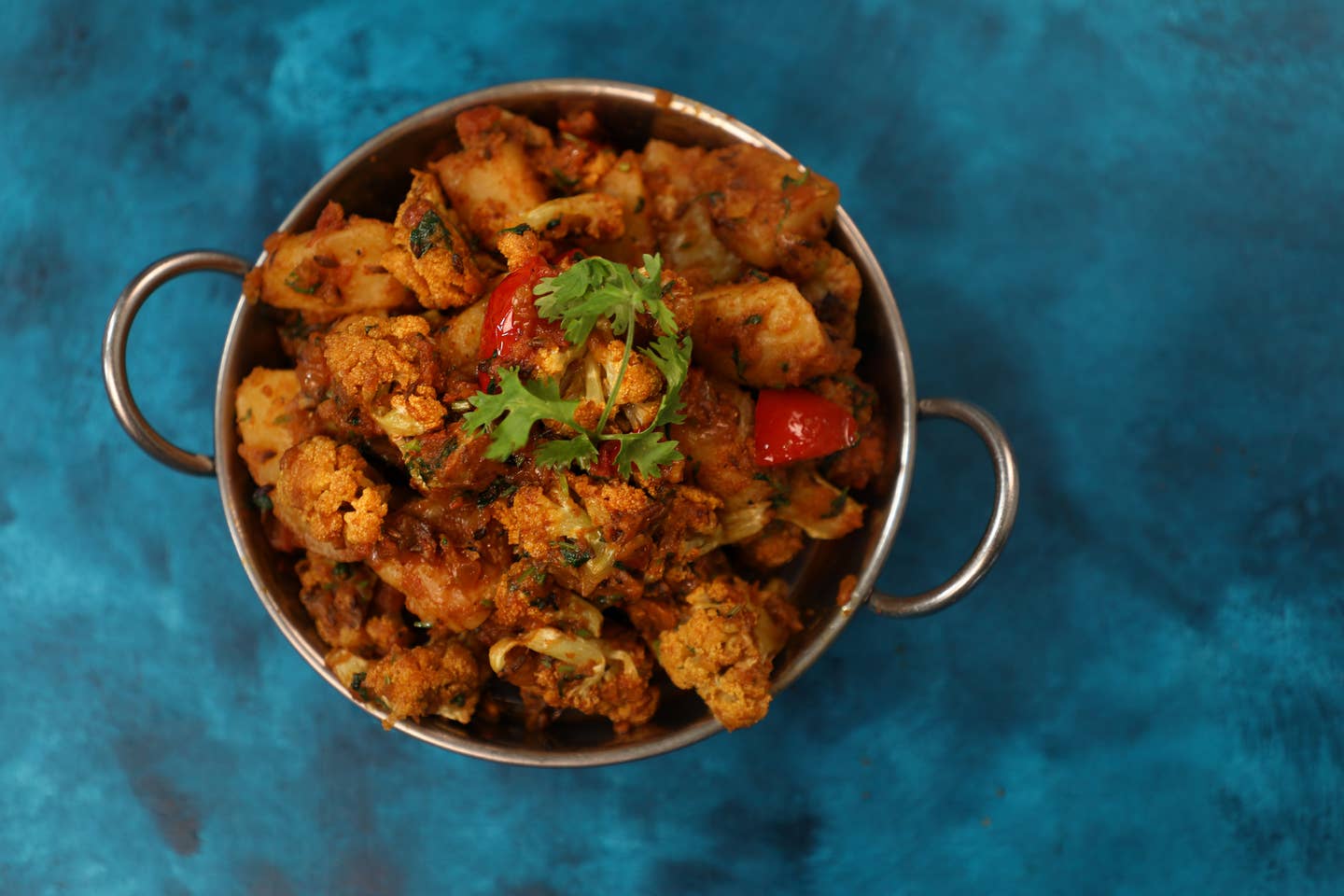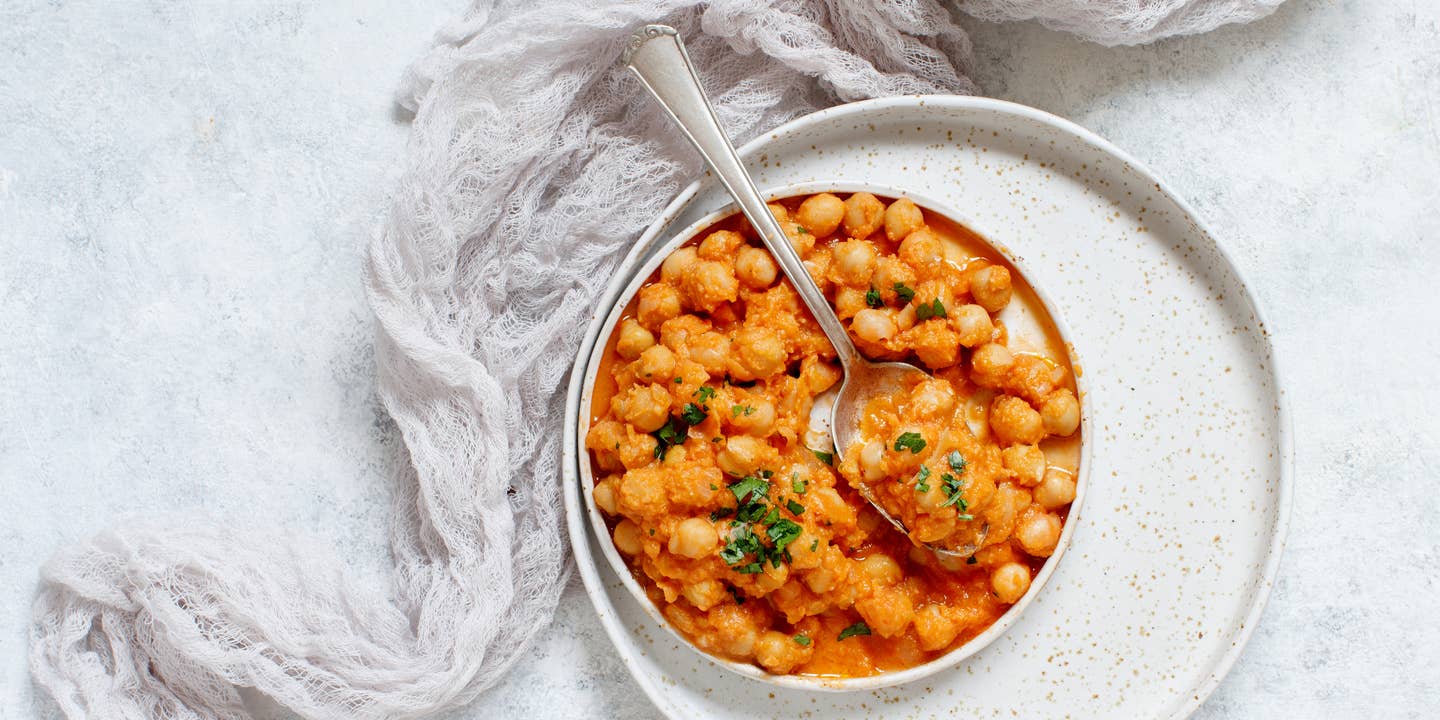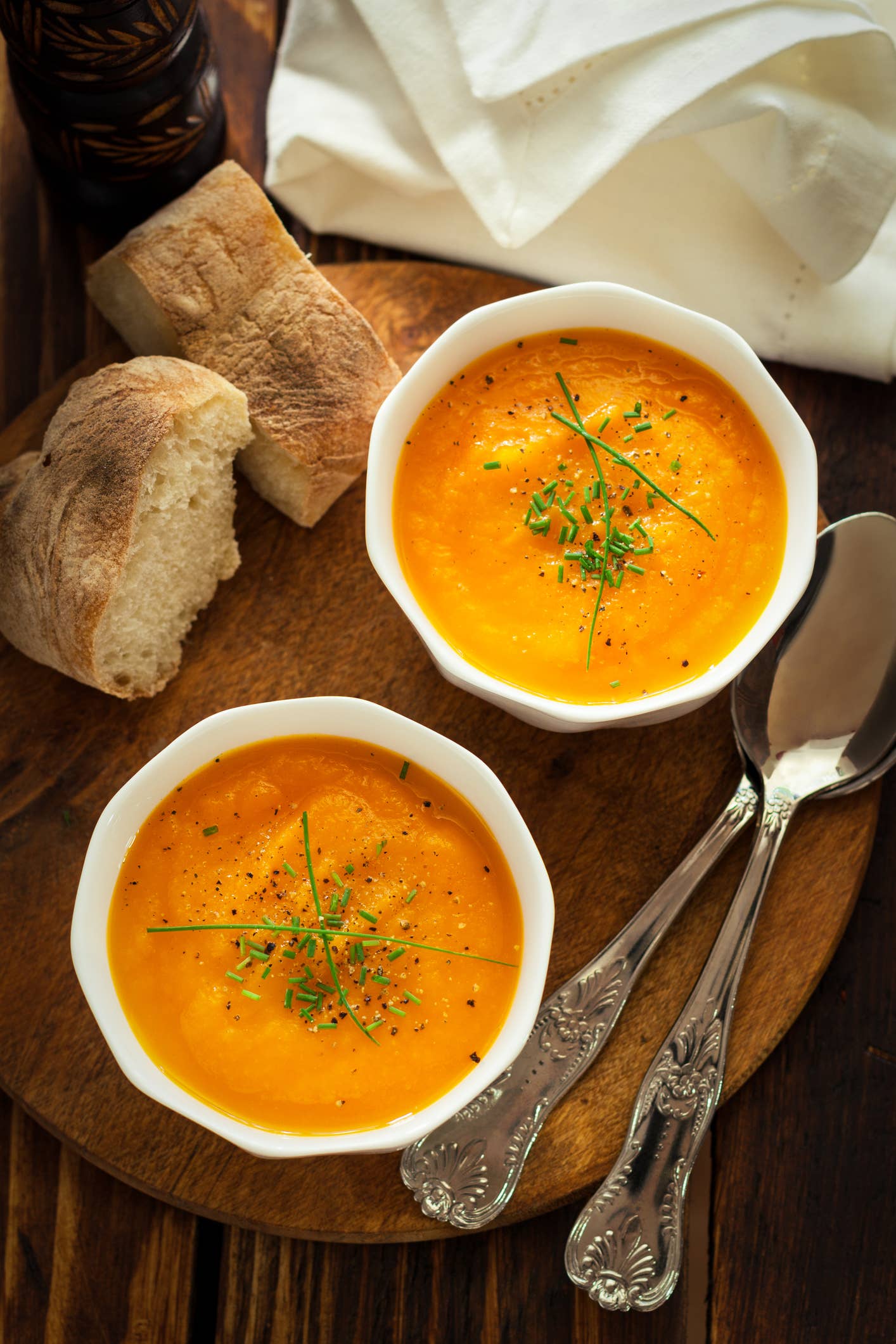
The 7 Best Vegan Foods Nutritionists Wish You’d Keep in Your Freezers
Once upon a glorious time, we didn’t think all that much about what was in our freezer. Some ice cube trays. A bag of tater tots. Maybe some frozen kale and a bag of walnuts because you remember reading somewhere that these omega-3-packed delights keep better that way. Now, our freezer is perhaps the most important sliver of real estate in our kitchen. Allowing us to cook warm and creamy tomato soup once, eat delicious bowls of it thrice and keep long-lasting frozen fruits and veggies on hand to minimize grocery trips during these unsettling times. But before you carve out more room for cashew milk ice cream and those aforementioned taters, heed the wisdom of these RDs on what to stock up on now for your health.
1. Edamame
Just because we’re not dining at Japanese restaurants doesn’t mean we can’t indulge in these immature green soybeans that really only need a sprinkle of salt to be a delectable appetizer. “This vegetable is a great source of plant-based protein and it also has omega-3 fatty acids, iron, calcium, fiber and antioxidants,” offers Melissa Nieves, LND, RD, MPH, of Fad Free Nutrition Blog. “You can find them shelled or in the pod. They make a great snack or appetizer; just lightly steam (remember, they’re already cooked) and enjoy,” she says.
2. Flax Seeds
“I keep a bag of whole flax seeds in the freezer. I try to buy the freshest possible and grind small portions (they’ll pass through your body undigested if not ground) as needed to prevent rancidity, explains Jennifer Cohen Katz, RDN, LDN, CC, of
FreshBalanceNutrition.com. “Flax contains omega-3 fatty acids and is the richest dietary source of a phytochemical called lignans which can reduce breast cancer risk,” she adds. You may already add flax seeds to smoothie recipes, but consider adding a tablespoon or so to salad dressing or pesto recipes for an added nutrition boost.
3. Frozen Riced Cauliflower
We also love this suggestion from Katz: “I always have frozen riced cauliflower in my freezer. I use it to give my smoothies a soft ice cream consistency and enjoy knowing that I’m getting the health benefits of a cruciferous vegetable at the same time,” she shares. “It contains indole-3-carbinol, which helps support healthy hormone metabolism and may decrease risk of breast cancer,” she says, also praising the white veggie for its good vitamin C content and the fiber it provides, helping you stay fuller for longer which may in turn curb overeating.
4. Grapes
Got grapes? Stick ‘em in your freezer. “I love keeping grapes in my freezer when the weather gets warm,” says Amanda A. Kostro Miller, RD, LDN, who serves on the advisory board for Fitter Living. The refreshing icy texture on the inside makes for a great post-dinner snack in lieu of sugar-loaded pastries or ice cream. Bonus: Grapes contain potent antioxidants known as polyphenols that are believed to fight inflammation in the body.
5. Broccoli
As a kid, no vegetable beat mom slicing up the stalks, adding some salt, and calling it homework fuel. As an adult, it may be more of a struggle to eat this cruciferous veggie. How many times have you bought broccoli only to see half of it spoil in your fridge because you couldn’t get around to using it? No more! “This is definitely a frozen veggie staple. Fresh broccoli tends to spoil rather quickly, and most of the time, we don’t need the whole head at once,” comments Nieves. “In order to prevent food waste (and save food dollars), choose frozen broccoli instead. Although its cancer‐preventative agent, sulforaphane, is greatly decreased during the pre-freezing blanching process, we don’t have to miss out on it: This study found that adding “daikon radish…to frozen broccoli that was then allowed to thaw supported sulforaphane formation,” she continues, adding you can found this compound in uncooked radish, horseradish, red radish, mustard, cauliflower, and arugula.
6. Veggie Burgers
Sometimes, you just don’t feel like cooking from scratch. But rather than fire up your Seamless or GrubHub app, frozen veggie burgers prove an excellent way to still enjoy a fast-food style meal without the guilt. If you can, opt for those that are low in sodium and have a recognizable ingredient list. “I always keep Hilary's Veggie Burgers in my freezer for a quick and easy lunch or dinner option. They are made with whole grains, beans, and vegetables and are free from 12 common allergens (like eggs and dairy!),” offers Jenna Gorham, RD, LN, director of brand/RD partnerships at Gorham Consulting Group. Also worth noting: “With whole grains and beans as the base they offer filling fiber and B vitamins,” Gorham adds.
7. Strawberries
“High in quercetin, an antioxidant with anticarcinogenic, anti-inflammatory, and antiviral properties, strawberries are a delicious addition to your healthy diet,” shares Nieves. “Fresh strawberries tend to spoil very quickly, but frozen ones have a longer shelf life, and are fun to eat straight from the freezer,” she continues. Other ways we love using these berries? Slip them into oatmeal, your favorite plant-based yogurt, or smoothie bowls for texture and sweetness.
More From The Beet






